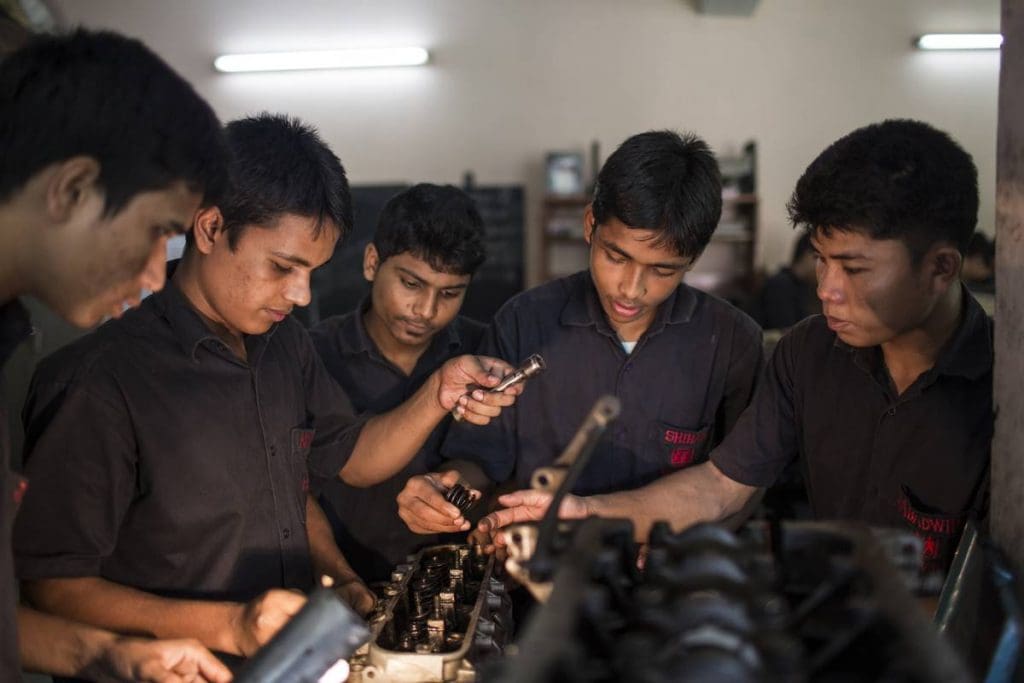By Rasika Soman
Research Associate (IIM-A)

I had assumed Education and employment were for empowerment and everyone wanted that empowerment. My assumptions were completely refuted when I started working for a vocational education program where we found people who ‘needed’ and ‘wanted’ employment to generate livelihoods. The most important part of this program was to find such people from the ‘pockets’ and ‘slums’ of Mumbai.
I have a vivid memory of going in these slums with a handkerchief on my face and a scarf on my head to escape the slithering heat of Mumbai and the stinky dirt of the slums. I enjoyed this so called fieldwork. It was really adventurous for me and more than that it brought out an entirely new perspective to my research topic. Everytime I visited these slums I saw a large group of people. This large group of people was nothing but the family living in the slum. With around five to six mouths to feed, I used to be astonished to see the head of the family sleeping or relaxing watching the TV while his spouse struggled to feed a glass of milk to the children.
My emotions used to be astonished everytime I saw this scene and my mouth used to immediately open to say ‘We are educating you and giving you employment and yes, all free of cost! Everytime I said this, almost everytime I got a reply saying ‘Mujhe kaam nahi karna hain’ (I don’t want to work). After getting such replies, our usual routine was always to arrange so called ‘awareness campaigns’ and ‘road shows’ telling the ‘importance of education’.
While doing all this, deep down in my heart I always felt whether is this skill development and vocational education program is really giving the poor people what they want. Or are we just ‘enforcing’ on them this ‘burden of getting skilled and educated’. My mind used to then fly at the jargons which vocational education programs usually use. These were of making the vocational education programs more ‘target oriented’, ‘audience related’ and the concentration on the pull rather than on the push factor.
I used to wander whether I could even relate to the problems and the struggles 0f the everyday life of the marginalized community. My goals of getting them educated seemed to be far-fetched when I thought them struggling for getting enough water supply and electricity as well as food in their homes. Education and employment were secondary goals for them. Dealing with this marginalized community who were at the very bottom of the pyramid was complex.
Tailoring vocational education programs for people who do not even get the basic necessities of life is itself in a way a challenge and I believe all these facts in the field should be considered when starting such a program for the marginalized. The vision and mission of these programs then off course would definitely change and more reality would be brought in while tailoring such programs. If the basic needs are not even fulfilled according to the Maslow’s theory, self-actualization is always and will always remain a far-fetched aim. We hope that vocational education programs take into consideration these ground realities when tailoring the program or setting up the vision and mission of the program.


